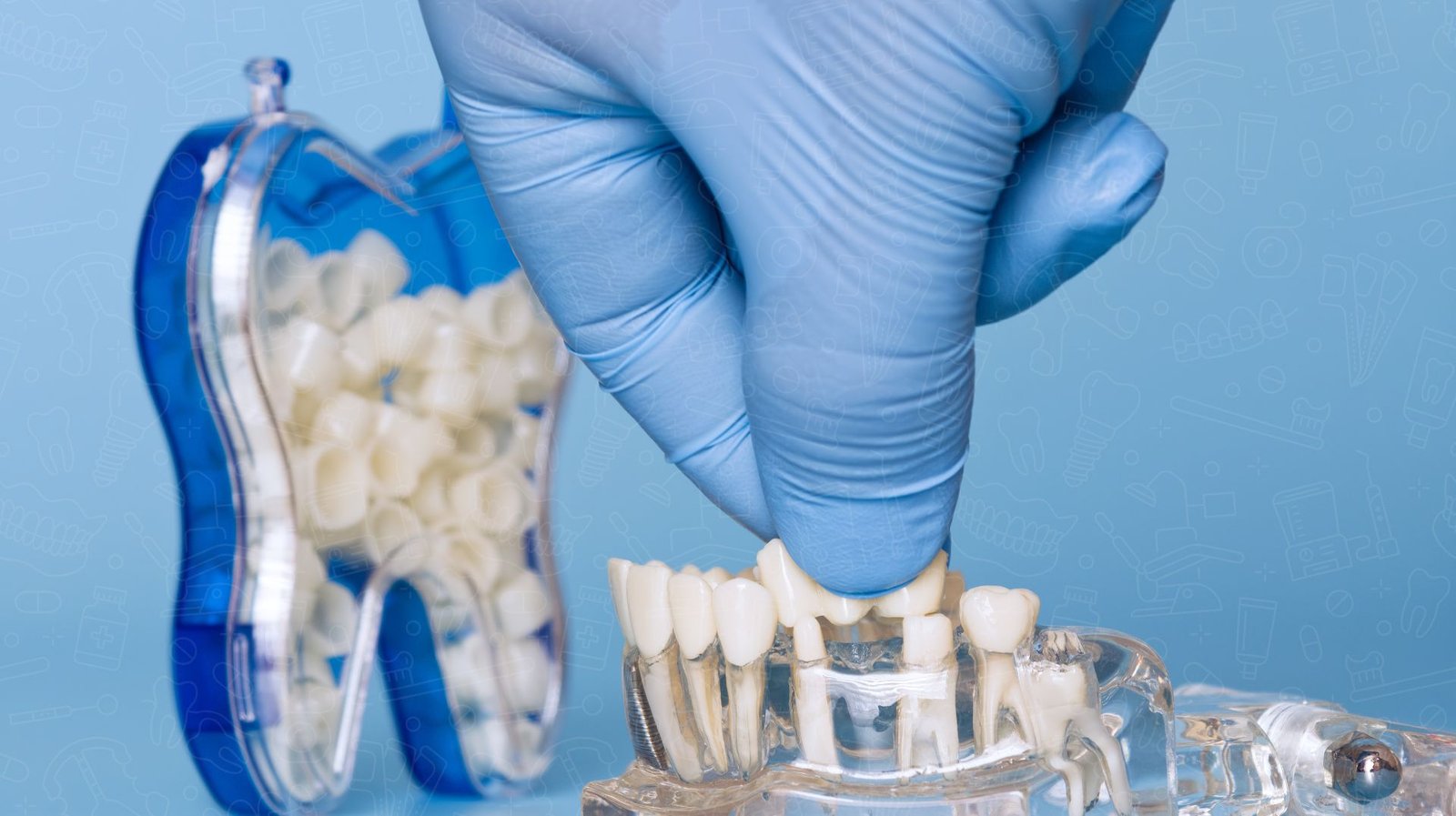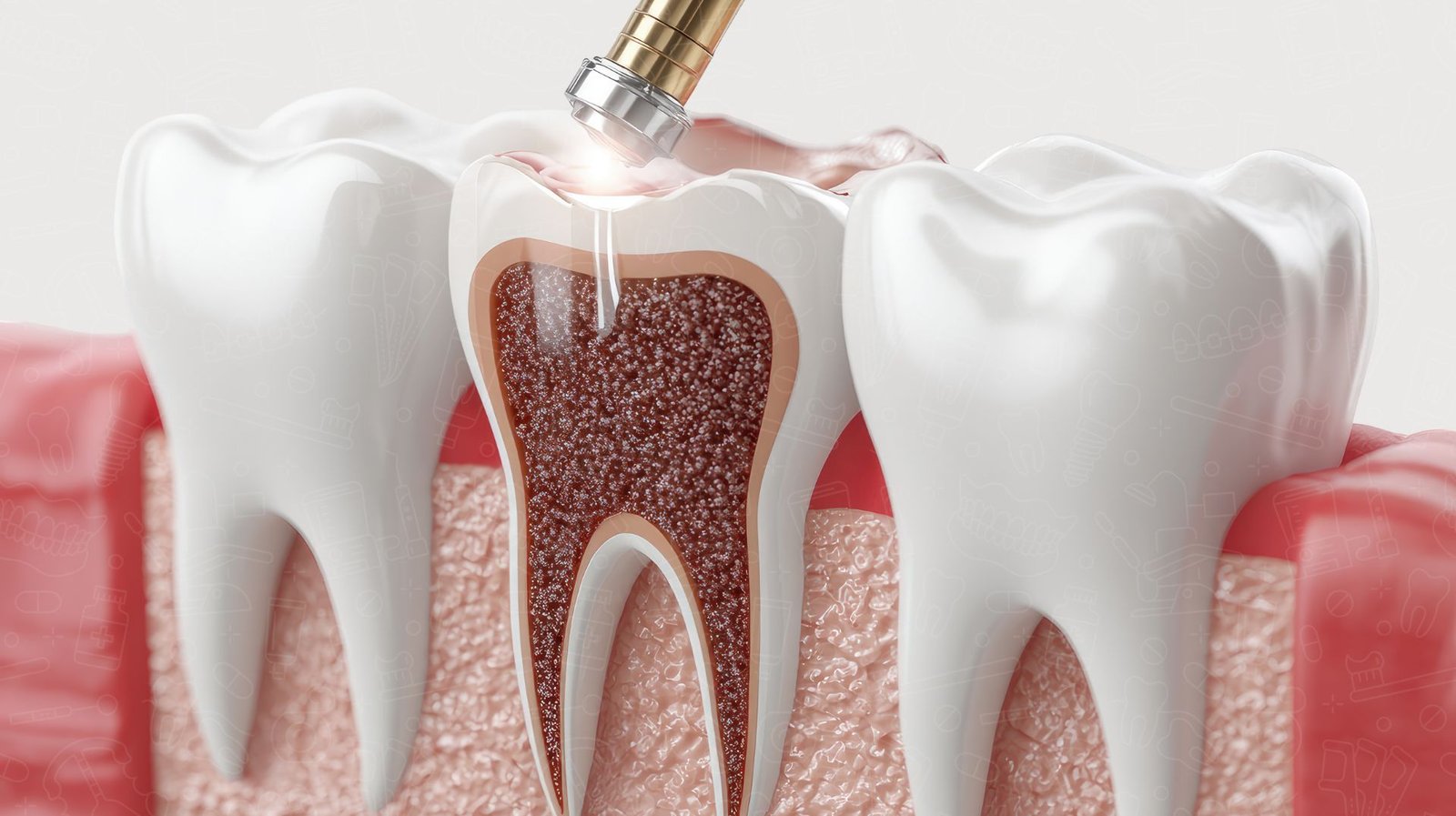Introduction
Brief Overview of Dentures
Dentures are removable dental appliances designed to replace missing teeth and restore the functionality and aesthetics of the mouth. Whether you have lost teeth due to decay, gum disease, injury, or other health conditions, false teeth offer a practical solution for regaining the ability to chew, speak, and smile confidently. False teeth come in different types, including full, partial, immediate, and implant-supported options, each tailored to suit specific dental needs.
Importance of Restoring Oral Health and Functionality
Missing teeth can impact more than just your appearance—they can also lead to difficulties in eating and speaking, as well as cause shifting of the remaining teeth. Over time, tooth loss can contribute to jawbone deterioration and changes in facial structure. Restoring oral health through the use of false teeth helps maintain proper function, prevents further oral health issues, and enhances the quality of life.
Purpose of the Guide: Essential Information for Prospective False teeth Wearers
This guide provides comprehensive information for individuals considering false teeth, covering everything from the different types of false teeth available to the benefits and challenges they present. Whether you are seeking a full set of false teeth or just need to replace a few missing teeth, this guide will help you understand your options and make an informed decision about restoring your smile.
Understanding Dentures
Definition and Function of False Teeth
False Teeth are custom-made dental appliances that replace missing teeth and the surrounding tissue. They are designed to fit comfortably in the mouth and replicate the appearance and function of natural teeth. False teeth can be made to replace a few missing teeth (partial dentures) or all the teeth in one or both jaws (full dentures).
Types of False Teeth
There are several types of false teeth available, each serving different needs:
- Full Teeth-Dentures: Full dentures, also known as complete dentures, are used when all the teeth in the upper or lower jaw are missing. They rest on the gums and are held in place by suction or denture adhesives.
- Partial Teeth-Dentures: Partial dentures are used when some natural teeth remain. They consist of replacement teeth attached to a gum-colored plastic base, held in place by metal clasps that anchor to the natural teeth.
- Immediate Teeth-Dentures: Immediate dentures are placed in the mouth immediately after the removal of natural teeth. They provide a temporary solution during the healing period before permanent false teeth are fitted.
- Implant-Supported Teeth-Dentures: Implant-supported dentures are secured in place by dental implants that are surgically inserted into the jawbone. This option offers enhanced stability and comfort compared to traditional false teeth.
Materials Used in False Teeth Construction
False Teeth can be made from various materials, each with unique characteristics:
- Acrylic Resin: Acrylic is a lightweight and affordable option that can be easily adjusted. It’s commonly used for both full and partial false teeth.
- Porcelain: Porcelain false teeth closely resemble the appearance of natural teeth and are highly durable. However, they are heavier and more prone to chipping than acrylic options.
- Metal Frameworks: Metal frameworks, often used in partial false teeth, provide strength and stability, making them a popular choice for patients needing durable and long-lasting false teeth.
Are Dentures the Right Solution for You?
Signs That You May Need False Teeth
- Missing Multiple Teeth or Complete Tooth Loss: False Teeth may be necessary if you have lost multiple teeth or all your teeth due to decay, gum disease, or trauma.
- Difficulty Chewing or Speaking: Difficulty in eating or speaking can be a sign that you need false teeth to restore proper function.
- Chronic Tooth Pain or Gum Disease: Persistent tooth pain or advanced gum disease may indicate the need for tooth extractions and the placement of false teeth.
Alternative Options to Consider
While false teeth are an effective solution for tooth loss, other options may be more suitable depending on your oral health and preferences:
- Dental Implants: Implants provide a permanent solution by replacing the tooth root and supporting crowns or bridges.
- Bridges: Dental bridges are fixed prosthetics that fill the gap created by one or more missing teeth.
- Overdentures: Overdentures fit over a few remaining teeth or implants to offer more stability than traditional false teeth.
Consultation with a Dentist
A consultation with a dentist is essential to evaluate your oral health and determine the best tooth replacement option for you. A professional evaluation will include an assessment of your gums, jawbone, and remaining teeth to ensure that false teeth are a suitable solution.
Types of False Teeth Explained
Full Dentures
- When to Consider Full Dentures: Full dentures are recommended when all teeth in the upper or lower jaw are missing, or when existing teeth are severely damaged and need to be extracted.
- Benefits and Limitations: Full dentures restore the appearance and function of your mouth but may require adhesives for stability and periodic adjustments as your gums change shape.
Partial Dentures
- Suitable Cases for Partial Dentures: Partial dentures are ideal for individuals with some remaining natural teeth. They help prevent shifting of the adjacent teeth and maintain proper alignment.
- How They Work and Their Advantages: Partial dentures are supported by the remaining natural teeth, making them stable and functional. They are also removable for easy cleaning.
Immediate Dentures
- What Are Immediate Dentures and Their Role? Immediate false teeth are placed on the same day that teeth are extracted, providing an immediate solution during the healing process.
- Pros and Cons of Immediate Dentures: While immediate false teeth offer instant results, they may require more adjustments as the gums heal and change shape.
Implant-Supported False Teeth
- Overview of Implant-Supported Dentures: Implant-supported dentures are anchored by dental implants, providing superior stability and function compared to traditional false teeth.
- Advantages Over Traditional Dentures: Implant-supported dentures prevent slipping and offer improved comfort, making them an excellent choice for those seeking a long-term solution.
- Procedure and Cost Considerations: Implant-supported dentures require a surgical procedure and a higher initial investment but offer long-term benefits that justify the cost.
The False Teeth Fitting Process: What to Expect
- Initial Consultation and Assessment: Your dentist will evaluate your oral health, take X-rays, and discuss your goals and expectations.
- Impression Taking and Model Creation: Impressions of your mouth are taken to create a model that ensures your false teeth fit perfectly.
- Trial Fitting and Adjustments: A trial denture is created for you to try on, allowing the dentist to make adjustments before the final set is made.
- Final Placement of Dentures: Once the final false teeth are ready, they are placed and adjusted to ensure comfort and function.
- Follow-Up Appointments and Adjustments: Follow-up visits are scheduled to monitor your progress and make any necessary adjustments for optimal comfort.
Adapting to Life with False Teeth
What to Expect During the First Few Weeks
Adapting to false teeth takes time. You may experience some soreness or difficulty speaking and eating initially, but these issues usually subside as your mouth adjusts.
Tips for Adjusting to Eating and Speaking with False Teeth
Start with soft foods and gradually introduce more solid foods as you become comfortable. Practice speaking in front of a mirror to help with pronunciation.
Managing Soreness and Discomfort
Use denture adhesives to provide additional stability, and consult your dentist if soreness persists.
Caring for Your Dentures
- Cleaning and Maintenance Tips: Clean your false teeth daily using a soft brush and denture cleaner. Avoid using abrasive toothpaste, which can scratch the surface.
- Proper Storage and Handling: Store false teeth in a denture solution or water when not in use to keep them moist and maintain their shape.
Regular Dental Visits and Denture Check-Ups
Regular check-ups ensure that your false teeth remain in good condition and fit properly. Your dentist can also assess the health of your gums and any remaining teeth.
Benefits of Dentures
- Restoring Functionality for Chewing and Speaking: False teeth restore the ability to chew food and speak clearly, improving overall quality of life.
- Improving Aesthetics and Boosting Confidence: False teeth enhance the appearance of your smile, leading to increased confidence and self-esteem.
- Supporting Facial Structure and Preventing Jawbone Loss: False teeth help maintain facial structure and prevent the sunken appearance that can occur with tooth loss.
- Cost-Effectiveness Compared to Other Dental Solutions: False teeth are often more affordable than implants, making them a popular choice for those seeking an economical solution.
Limitations and Challenges of False Teeth
- Potential Complications: False teeth can cause irritation, soreness, and mouth sores, especially during the adjustment period.
- Difficulty with Stability and Slippage: Traditional false teeth may slip or shift while eating or speaking, requiring adhesives for stability.
- Durability and Longevity: The average lifespan of dentures is 5-10 years, after which they may need to be replaced due to wear or changes in your oral structure.
Comparisons to Other Tooth Replacement Options
- Dentures vs Implants: Implants offer a permanent solution but are more expensive and require surgery.
- Dentures vs. Bridges: Bridges are fixed solutions supported by adjacent teeth but are only suitable for small gaps.





